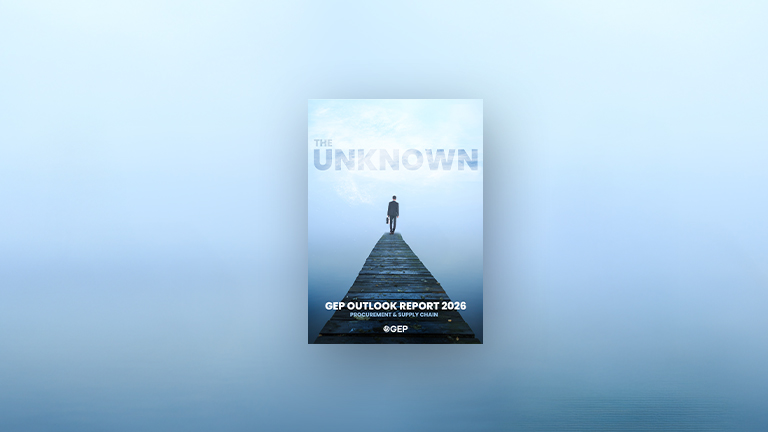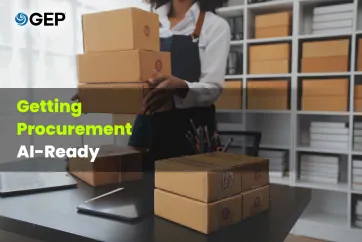
Let's Talk Strategic Procurement (And How It Isn't Just About Saving Money)
- Strategic procurement transforms the purchasing function from a cost center to a value creator that drives advantage.
- Effective strategic procurement requires both technological integration and human expertise across spend analysis, supplier relationships, and risk management.
- Organizations with mature procurement capabilities achieve higher profit margins while building more resilient and sustainable supply chains.
May 12, 2025 | Procurement Strategy 4 minutes read
Razor-thin margins and relentless competition are driving organizations to constantly search for opportunities to gain whatever advantage is possible. Yet many overlook the strategic goldmine sitting right within their procurement function.
For decades, procurement was relegated to the back office — a necessary but uninspiring cost center focused on obtaining goods at the lowest possible price. Today's most successful organizations know this: procurement isn't just about buying; it's about strategically acquiring resources that fuel competitive advantage.
Ready for Growth? GEP Has the Answers
Transform your business with our AI-powered procurement and supply chain software and services
What is Strategic Procurement?
Strategic procurement goes far beyond the traditional purchasing function. It represents a comprehensive approach to acquiring goods and services that aligns procurement activities with an organization's broader business objectives and long-term vision. Unlike conventional procurement, which primarily focuses on cost reduction and immediate needs, strategic procurement takes a holistic view of the entire supply ecosystem.
Strategic procurement involves developing deep supplier relationships, analyzing total cost of ownership rather than just purchase price, and creating value that extends throughout the supply chain. It also involves understanding market dynamics, anticipating supply challenges, and providing insights that inform executive decision-making — transforming procurement from a reactive department into a proactive function that shapes business strategy.
Why is Strategic Procurement Important?
Organizations with mature strategic procurement capabilities typically achieve 5-15% higher profit margins than their industry peers through both cost efficiencies and revenue enhancements.
Beyond cost savings, strategic procurement creates competitive advantage through:
- Enhanced innovation by tapping into supplier expertise and collaborating on product development.
- Improved business continuity by identifying and mitigating supply chain risks before they materialize.
- Greater sustainability and corporate responsibility by ensuring ethical sourcing practices throughout the supply chain.
- Accelerated time-to-market by streamlining supplier integration into product development cycles — particularly crucial in fast-moving industries.
Key Components of Strategic Procurement
Effective strategic procurement comprises several interconnected components that work together to optimize value creation:
Spend Analysis and Category Management
Strategic procurement begins with granular visibility into organizational spend patterns. By categorizing expenditures and analyzing spending behaviors, procurement professionals identify opportunities for consolidation and strategic sourcing initiatives. Category management enables specialized approaches for different types of purchases based on their strategic importance.
Supplier Relationship Management
Strategic procurement cultivates collaborative relationships with key suppliers, establishing governance frameworks, performance metrics, and continuous improvement programs. These relationships evolve into strategic partnerships where suppliers become extensions of the organization's capabilities, contributing to innovation and competitive differentiation.
Risk Management
Strategic procurement proactively identifies and mitigates supply chain risks through supplier diversification, contractual protections, and contingency planning. This component has become increasingly critical as global supply chains face disruptions from political instability, climate events, trade disputes, as well as tariff wars.
Technology Integration
Modern strategic procurement leverages advanced technologies for spend analytics, e-sourcing, contract management, and supplier performance monitoring. Digital transformation of procurement processes enhances efficiency and provides data-driven insights for strategic decision-making.
Governance and Compliance
Strategic procurement establishes clear policies, procedures, and controls that ensure regulatory compliance, ethical standards, and alignment with organizational objectives while balancing flexibility and control.
How Has AI Changed the Dynamics of Strategic Procurement?
Artificial intelligence has fundamentally transformed strategic procurement, revolutionizing how organizations identify opportunities, engage with suppliers, and manage supply chain risks. AI-powered analytics now process vast quantities of procurement data to uncover patterns and insights that human analysts might miss.
Machine learning algorithms have enhanced spend analysis capabilities, automatically categorizing transactions and identifying savings opportunities with unprecedented precision. These technologies also facilitate predictive analytics, forecasting price trends and potential supply disruptions before they occur.
Natural language processing has streamlined contract management by extracting key terms, obligations, and risks from complex legal documents. AI-driven supplier intelligence tools continuously monitor supplier health indicators to provide early warning of potential disruptions.
However — procurement professionals remain irreplaceable despite these technological advances. AI excels at processing data and identifying patterns, but human judgment remains essential for interpreting insights, managing supplier relationships, and making strategic decisions that balance multiple competing objectives. The most successful organizations view AI as an enabler of strategic procurement rather than a replacement for procurement expertise, recognizing that AI tools are most powerful when they amplify human intelligence rather than attempting to replace it.
Don’t Let Procurement Become a Hidden Barrier and Hold You Back
Explore how leading firms are using AI to transform procurement into a strategic driver of expansion
Conclusion
Strategic procurement is evolving from a value protector to a value creator, from a support function to a strategic driver of organizational success. Forward-thinking organizations are positioning their procurement teams as innovation catalysts, sustainability champions, and strategic business partners.
Strategic procurement will continue to harness data as a strategic asset, moving beyond descriptive analytics to prescriptive capabilities that enable autonomous decision-making for routine activities while freeing human expertise for higher-value initiatives.
Organizations that recognize and invest in strategic procurement's transformative potential will not only achieve competitive advantage but also contribute to addressing global sustainability challenges.



